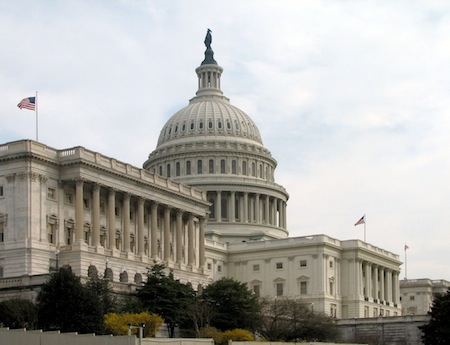Eshoo: FCC Broadband Deployment Committee Needs Local Input

The smarter way to stay on top of broadcasting and cable industry. Sign up below
You are now subscribed
Your newsletter sign-up was successful
Rep. Anna Eshoo (D-Calif.) wants the FCC to tap into more state and local government input on broadband deployment, suggesting the FCC’s goal now is to serve industry and tie the hands of those local governments.
That came in a letter Eshoo sent to FCC Chairman Ajit Pai and the other commissioners Tuesday (Nov. 7) according to a copy obtained by B&C/Multichannel News. Eshoo wants to see more state and local officials on the FCC's Broadband Deployment Advisory Committee (BDAC). She has 14 other signatories on the letter, including Reps. Mike Doyle (D-Pa.), ranking member of the House Communications Subcommittee; Tony Cardenas (D-Calif.); and Zoe Lofgren (also D-Calif.).
BDAC held its first meeting last April. It was created by Pai to come up with strategies for closing the digital divide and advancing his Digital Empowerment Agenda, comprising various stakeholders. Closing the broadband digital divide, particularly in rural areas, has been a key agenda issue for Pai.
The committee is expected to come up with two "model codes," one for cities and the other for states, those codes being guidelines for how to streamline broadband deployment while balancing the interests of government with the demands for better, faster and cheaper broadband.
As currently constituted, says Eshoo, over 75% of the board is made up of representatives of big wireless and cable companies including as AT&T, Comcast and Sprint, citing a report from the Center for Public Integrity.
"we are concerned that the composition of the 30-member BDAC relies too heavily on the input of industry voices and less on public officials who are responsible for protecting the public interest and who understand the issues and perspectives of local communities nationwide,” says Eshoo.
Eshoo also cites what she says is BDAC's lack of transparency and restrictions on public access to working documents.
"We’re concerned that the BDAC will serve as a vehicle to advance laws and policies that serve the needs of industry at the expense of the public interest. This is reflected in the language of the BDAC overview itself, which states the purpose of the Committee is to “eliminate regulatory barriers,” - presuming that regulatory protections are an inherent obstruction - other than to examine or address regulatory policy through a more holistic approach," she writes.
The smarter way to stay on top of broadcasting and cable industry. Sign up below
Eshoo has some suggestions for improving the process, including expanding representation of state and local government members on all five working groups, making public all meetings, submissions, and draft documents, giving ample time for public comment before using those to guide commission policy, and "refocusing" BDAC to "create more industry accountability for increasing quality network coverage and lowering costs to all Americans, including in rural and low-income areas, instead of solely focusing on tying the hands of state and local governments."
Eshoo is former ranking member of the House Energy & Commerce Communications Subcommittee and remains active on issues like broadband deployment, net neutrality and privacy.
Contributing editor John Eggerton has been an editor and/or writer on media regulation, legislation and policy for over four decades, including covering the FCC, FTC, Congress, the major media trade associations, and the federal courts. In addition to Multichannel News and Broadcasting + Cable, his work has appeared in Radio World, TV Technology, TV Fax, This Week in Consumer Electronics, Variety and the Encyclopedia Britannica.

